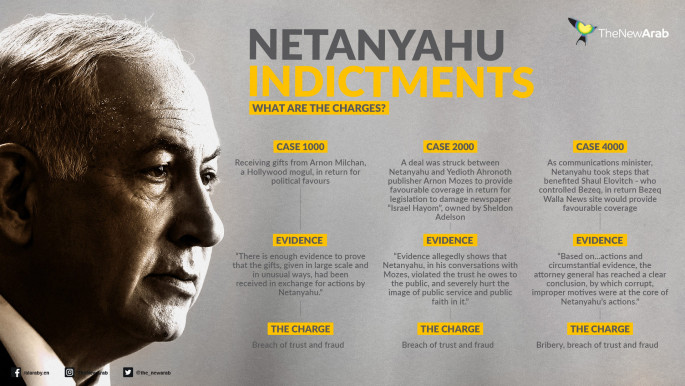More than one-in-four Israelis live in poverty
This year has seen a sharp rise in Israelis living in poor conditions.
2 min read
Israelis are living in increasingly difficult conditions [Getty]
More than a quarter of Israel's population is classed as poor, a local report has revealed.
A report by Latet, Israel's largets non-profit organisation, has revealed a rise in poverty, nutritional insecurity and hunger across the country.
The number of Israelis suffering from nutrition insecurity rose from 16 percent in 2018 to 18.5 percent in 2019, with those suffering from food insecurity rose from 5.5 percent to 6.5 percent between the two years.
It has led to some people taking extreme measures such as begging and eating from bins.
Last year, three percent of Israelis said they resorted to "humiliating" situations to look for food. The percentage rocketed to 12 percent this year.
Read also: Netanyahu says Israel has 'full right' to annex Jordan Valley
Nutrition insecurity is defined as a lack of access to food that provide all essential nutrients. Food insecurity, however, is defiend as a lack of access to food in general.
The report added that 530,000 families in Israel, 20.9 percent of the total number of households in the country live in poverty.
The number of individuals living in poverty has reached over 2,306,000 people, which is 25.6 percent of the population including more than a 1 million children.
Latet blamed the rise in poverty and food insecurity "insufficent" government policy.
"Government policy tools directed at the issue are generally limited and insufficient to diminish the problem substantially, to which has been added stagnation in government and political instability because of the two elections a short time apart in 2019, leading to the loss of an entire year in the ability to deal with prevention and reduction of poverty and rescue from it," the organisation said.
The report did not differenciate between Jewish and Palestinian citizens of Israel, but traditionally, Palestinian citizens of Israel have suffered higher rates of poverty.

A report by Latet, Israel's largets non-profit organisation, has revealed a rise in poverty, nutritional insecurity and hunger across the country.
The number of Israelis suffering from nutrition insecurity rose from 16 percent in 2018 to 18.5 percent in 2019, with those suffering from food insecurity rose from 5.5 percent to 6.5 percent between the two years.
It has led to some people taking extreme measures such as begging and eating from bins.
Last year, three percent of Israelis said they resorted to "humiliating" situations to look for food. The percentage rocketed to 12 percent this year.
Read also: Netanyahu says Israel has 'full right' to annex Jordan Valley
Nutrition insecurity is defined as a lack of access to food that provide all essential nutrients. Food insecurity, however, is defiend as a lack of access to food in general.
The report added that 530,000 families in Israel, 20.9 percent of the total number of households in the country live in poverty.
The number of individuals living in poverty has reached over 2,306,000 people, which is 25.6 percent of the population including more than a 1 million children.
Latet blamed the rise in poverty and food insecurity "insufficent" government policy.
"Government policy tools directed at the issue are generally limited and insufficient to diminish the problem substantially, to which has been added stagnation in government and political instability because of the two elections a short time apart in 2019, leading to the loss of an entire year in the ability to deal with prevention and reduction of poverty and rescue from it," the organisation said.
The report did not differenciate between Jewish and Palestinian citizens of Israel, but traditionally, Palestinian citizens of Israel have suffered higher rates of poverty.

Follow us on Twitter and Instagram to stay connected





 Follow the Middle East's top stories in English at The New Arab on Google News
Follow the Middle East's top stories in English at The New Arab on Google News
![Israeli forces ordered bombed Gaza's Jabalia, ordering residents to leave [Getty]](/sites/default/files/styles/image_330x185/public/2176418030.jpeg?h=a5f2f23a&itok=_YGZaP1z)

